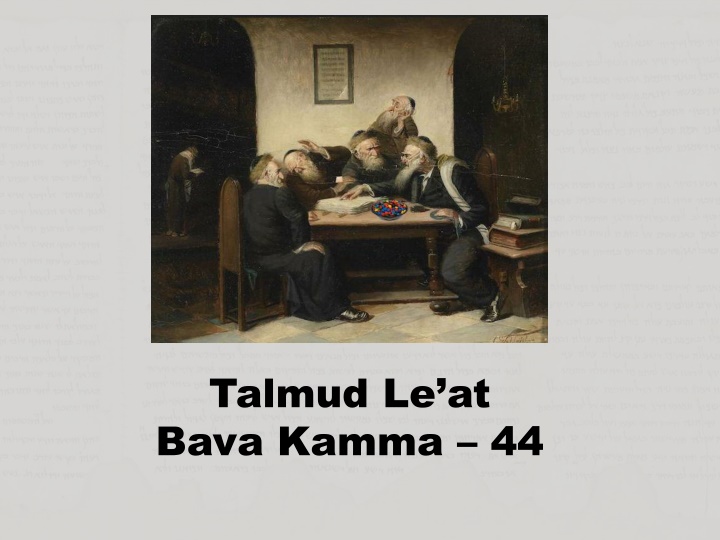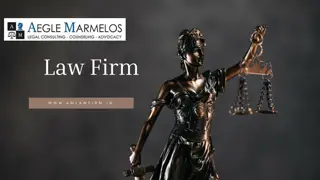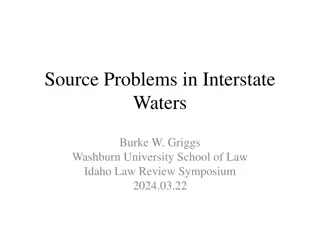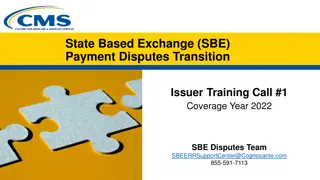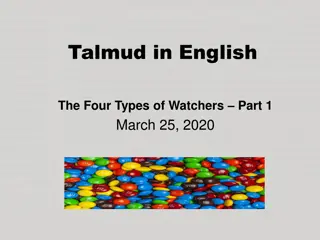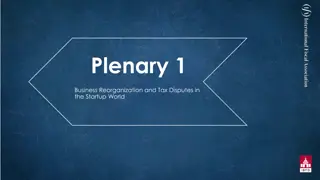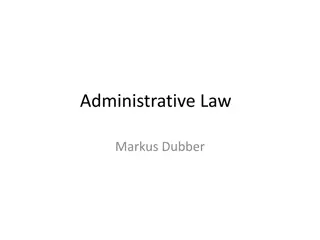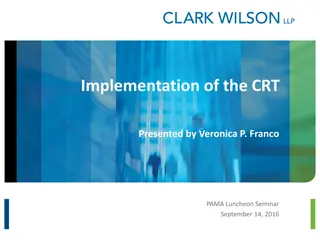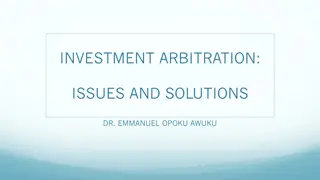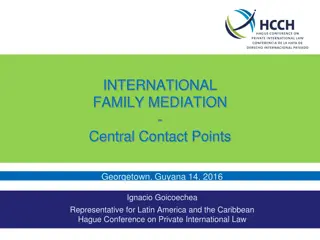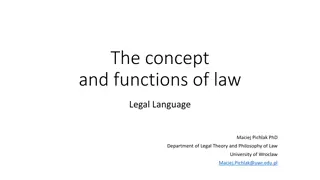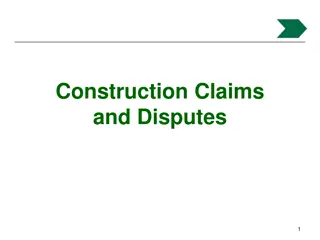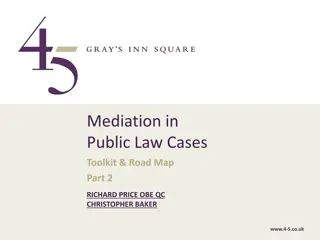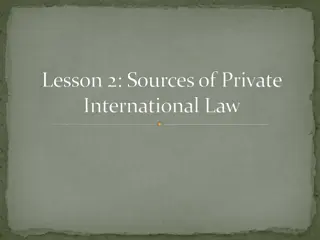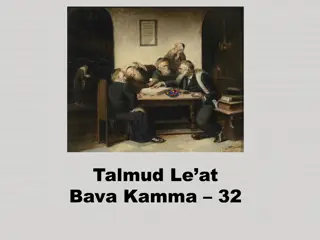Insights into Talmudic Law Disputes
Delve into fascinating Talmudic discussions on legal matters such as ox liabilities, destructive acts, and embarrasment. Explore debates between Rabbis and gain perspectives on various scenarios presented in the texts.
Uploaded on Mar 09, 2025 | 1 Views
Download Presentation

Please find below an Image/Link to download the presentation.
The content on the website is provided AS IS for your information and personal use only. It may not be sold, licensed, or shared on other websites without obtaining consent from the author.If you encounter any issues during the download, it is possible that the publisher has removed the file from their server.
You are allowed to download the files provided on this website for personal or commercial use, subject to the condition that they are used lawfully. All files are the property of their respective owners.
The content on the website is provided AS IS for your information and personal use only. It may not be sold, licensed, or shared on other websites without obtaining consent from the author.
E N D
Presentation Transcript
Talmud Leat Bava Kamma 44
Review Mishnah 3:9 They shall sell the live ox and divide its price (Exodus 21:35) R. Yehuda vs R. Meir "What is between them?" You can't pay more than the value of the ox Mishnah 3:10 Owner & Ox Liability 2 Talmud Le'at - 44
Bava Kamma 34b : " : " " ! , , R. Abahu taught in front of R. Yohanan: Anyone who does a destructive act is exempt except for one who injures and one who burns He said to him: Go out and teach outside! One who injures and one who burns is not a mishnah And if you say that it is a mishnah, one who injures and needs for his dog, one who burns and needs the ashes 3 Talmud Le'at - 44
Bava Kamma 34b : , " , ;" We learned: His ox lit a haystack on Shabbat, liable; and he lit a haystack on Shabbat, exempt And it is teaching "him like his ox"; just as his ox does not need, so too he does not need And it teaches exempt because he is sentenced to death 4 Talmud Le'at - 44
Bava Kamma 35a , , No, his ox is like him Just as he needed, so too his ox needed 5 Talmud Le'at - 44
Bava Kamma 35a ? : : ? " His ox: how could you find this? R. Avya said him: What are we dealing with here? With a clever ox who was bit on his back and he wanted to burn and roll in the ashes And how do we know? After it burned, it rolled in the ashes ? 6 Talmud Le'at - 44
Bava Kamma 35a ? , And is there such a case? Yes, a certain ox in R. Papa's house which had a toothache He went inside and broke the lid and drank the beer and was healed 7 Talmud Le'at - 44
Bava Kamma 35a ? : , ; , , ? : The rabbis said in front of R. Papa: How can you say his ox is like him? But does it not teach: his ox caused embarrassment, exempt; he caused embarrassment, liable His ox is like him, in that it intentionally caused embarrassment, how could you find this? 8 Talmud Le'at - 44
Bava Kamma 35a : , " Where he intended to injure, for the Master said: intends to injure, even if he did not intend to embarrass 9 Talmud Le'at - 44
Bava Kamma 35a : " Rava said: The mishnah is "unintentionally" as taught in the house of Hizkiyah For the house of Hizkiyah taught, One who strikes a person and one who strikes a beast (Leviticus 24:21) : " 10 Talmud Le'at - 44
Leviticus 24:21 One who kills a beast shall make restitution for it; One who kills a human being shall be put to death 11 Talmud Le'at - 44
Bava Kamma 35a , , , ; Just as when one strikes a beast, it does not distinguish between unintentional and intentional, between one who acts with purpose and one who does not act with purpose, between downward motion and upward motion, to exempt him from payments, but rather to make him liable for payments; so too one who strikes a person, it does not distinguish between unintentional and intentional, between one who acts with purpose and one who does not act with purpose, between downward motion and upward motion, to make him liable for payments, but rather to exempt him for payments 12 Talmud Le'at - 44
Bava Kamma 35a ? : " , " " : ? , ? " The Rabbis said to Rava: Can you interpret it as unintentional? But does it not teach because he is liable for his life ? This is what it means: Since it is intentional, he would be liable for his life And what are the circumstances? That he needs the ashes So here, unintentional, exempt 13 Talmud Le'at - 44
Mishnah 3:11a : " " " " : : , An ox pursuing another ox and it was injured: this one claims: Your ox caused the injury" and this one claims: No, it was injured by a rock The one who seeks to exact from his fellow, on him lies the proof 14 Talmud Le'at - 44
Mishnah 3:11b : : " " : " " , Two pursuing after one: this one claims Your ox caused the injury , and this one claims Your ox caused the injury , Both exempt If both are owned by one man, both liable 15 Talmud Le'at - 44
Mishnah 3:11c : " " , : : : : : " " " " " , " One was big and one was small: the victim claims: The big one caused the injury , and the damager claims: No, rather the small one caused the injury , One was a Tam and one was a Muad: the victim claims: The Muad caused the injury , and the damager claims: No, rather the Tam caused the injury , The one who seeks to exact from his fellow, on him lies the proof 16 Talmud Le'at - 44
Mishnah 3:11d : , " " , , " , : : : : : : " " " " , " Two were injured, one big and one small, and two caused the injury, one big and one small: the victim claims: The big injured the big and the small the small , and the damager claims: No, rather the small injured the big and the big the small , One was a Tam and one was a Muad: the victim claims: The Muad injured the big and the Tam the small , and the damager claims: No, rather the Tam the big and the Muad the small , The one who seeks to exact from his fellow, on him lies the proof 17 Talmud Le'at - 44
Bava Kamma 35b [ : ] : , R. Hiyya bar Abba said: [That is to say,] Sumachus s colleagues disagree with him, for he said: Money over which there is doubt, is to be divided 18 Talmud Le'at - 44
Bava Kamma 35b : : ' ' " : , " ?" : " " " R. Abba bar Mamel said to R. Hiyya b. Abba: Sumachus said: "even certain and certain"? He said to him: Yes, Sumachus said: "even certain and certain" 19 Talmud Le'at - 44
Bava Kamma 35b ? " ' : " " , " : : And from where in our mishnah is certain and certain? As it is taught: This one claims: "Your ox injured" and this one claims: "No, rather 20 Talmud Le'at - 44
Bava Kamma 35b : : R. Papa raised a difficulty: If in the first clause, certain and certain, the second clause also certain and certain Say the second clause: One was big and one was small: the victim claims: The big one caused the injury , and the damager claims: No, rather the small one caused the injury , One was a Tam and one was a Muad: the victim claims: The Muad caused the injury , and the damager claims: No, rather the Tam caused the injury , The one who seeks to exact from his fellow, on him lies the proof 21 Talmud Le'at - 44
Bava Kamma 35b : , If he does not bring proof, he takes as the damager says Let us say that this refutes Rabbah bar Natan who said: If one claims wheat and he admits to owing barley, exempt Rather, certain and uncertain 22 Talmud Le'at - 44
Bava Kamma 35b ? , Who is the one that says certain and who is the one that says uncertain? If we say the victim is certain and the damager is uncertain, let us still say we have a refutation of Rabbah b. Natan 23 Talmud Le'at - 44
Bava Kamma 35b Rather, the victim is uncertain and the damager is certain 24 Talmud Le'at - 44
Bava Kamma 35b , ? And since the second clause is the victim is uncertain and the damager is certain, the first clause also is the victim is uncertain and the damager is certain And does Sumachus state that even with regard to this it was necessary to teach us "not"? , ' 25 Talmud Le'at - 44
Bava Kamma 35b ; ! ; ! : No! In the second clause, the victim is uncertain and the damager is certain; the first clause the victim is certain and the damager is uncertain But now the first clause and second clause are not the same! Say: Certain and uncertain, uncertain and certain are one matter; certain and certain and uncertain and certain are two matters 26 Talmud Le'at - 44
Bava Kamma 35b , : : " ? , " , : The source itself: Rabbah bar Natan said: If one claims wheat and he admits to owing barley, exempt What does this teach us? We have already taught: If one claims wheat and he admits to owing barley, exempt If from there, I might have said exempt from the cost of wheat but liable for the cost of barley Therefore it teaches us that he is completely exempt 27 Talmud Le'at - 44
Bava Kamma 35b ' , : ? ! We learned: If two were injured, one big and one small, etc If he does not bring proof, then he collects as the victim stated Why? They are wheat and barley! 28 Talmud Le'at - 44
Bava Kamma 35b : ? He is eligible to take but he does not But does it not teach: This one collects payment for the small from the big and for the big from the small? Where he seized 29 Talmud Le'at - 44
Bava Kamma 35b : : ? It was taught: One was a Tam and one was a Muad: the victim claims: The Muad injured the big and the Tam the small , and the damager claims: No, rather the Tam the big and the Muad the small The one who seeks to exact from his fellow, on him lies the proof If he does not bring proof, then he collects as the victim stated Why? They are wheat and barley 30 Talmud Le'at - 44
Bava Kamma 35b : ? He is fit to take but he does not But does it not teach: This one collects payment for the small from the Muad and for the big from the Tam? Where he seized 31 Talmud Le'at - 44
Bava Kamma 36a , " ? , : " , If both belonged to one person, both are liable Rava of Parzika said to R. Ashi: Learn from this that two Tam cause damage, if he wants from that one, he can collect; if he wants from that one, he can collect What are we dealing with here? With Muads 32 Talmud Le'at - 44
Bava Kamma 36a : , ? If Muads, say the latter clause: If one was big and was small: the victim says, The big caused the injury , and the damager says, The small caused the injury" The one who seeks to exact from his fellow, on him lies the proof If Muads, what does it matter? In the end, he is required to pay the value of a full ox 33 Talmud Le'at - 44
Bava Kamma 36a " : : , " ? , ? He said to him: The second clause refers to Tam, but the first clause refers to Muad R. Aha Sabba said to R. Ashi: If it refers to Muads, it says they are liable but it should say a person is liable Furthermore, why both ? 34 Talmud Le'at - 44
Bava Kamma 36a , : " " Rather, it does indeed refer to Tams, and it follows R. Akiva who said they are partners And the reason is that both exist, and he can t push him aside But if both of them do not exist, he can say to him, Go bring proof that this ox injured you and I will pay you 35 Talmud Le'at - 44
Bava Kamma 36a " " May we return to you One who places 36 Talmud Le'at - 44
Bava Kamma 36a " " May we return to you "HaManiach" We will return to you, and you will return to us; our mind is on you, and your mind is on us; we will not forget you, and you will not forget us not in this world and not in the world to come. 37 Talmud Le'at - 21
